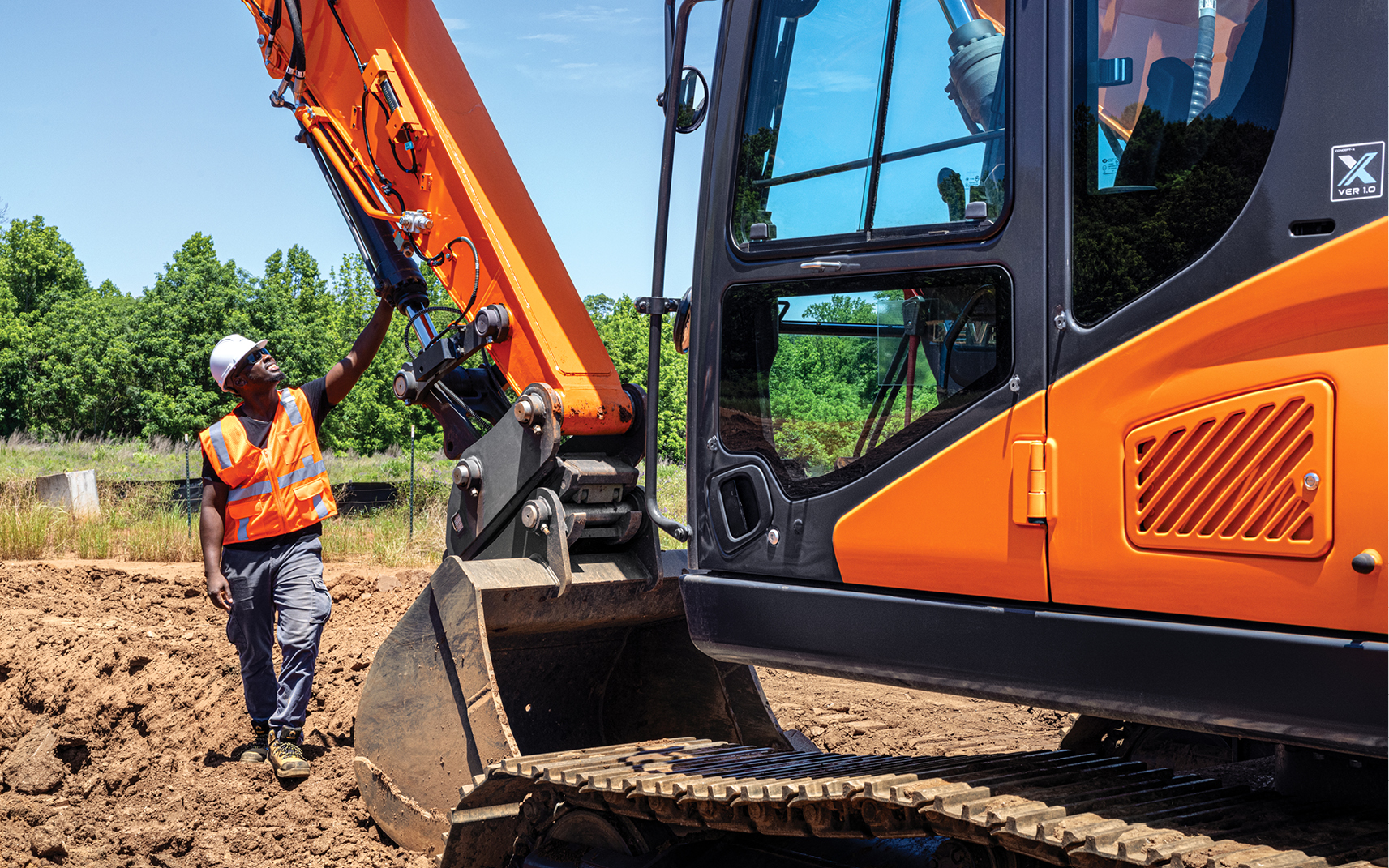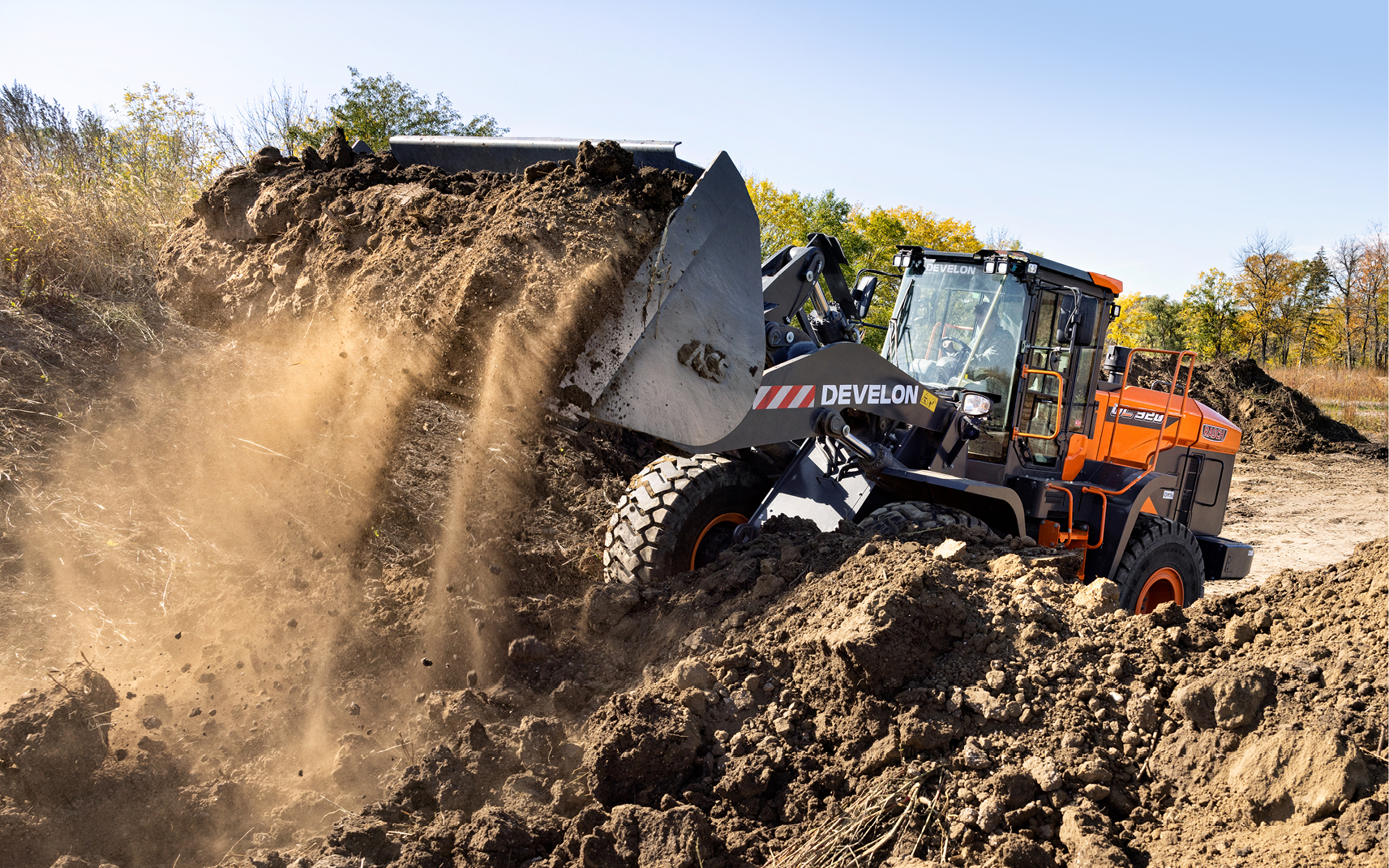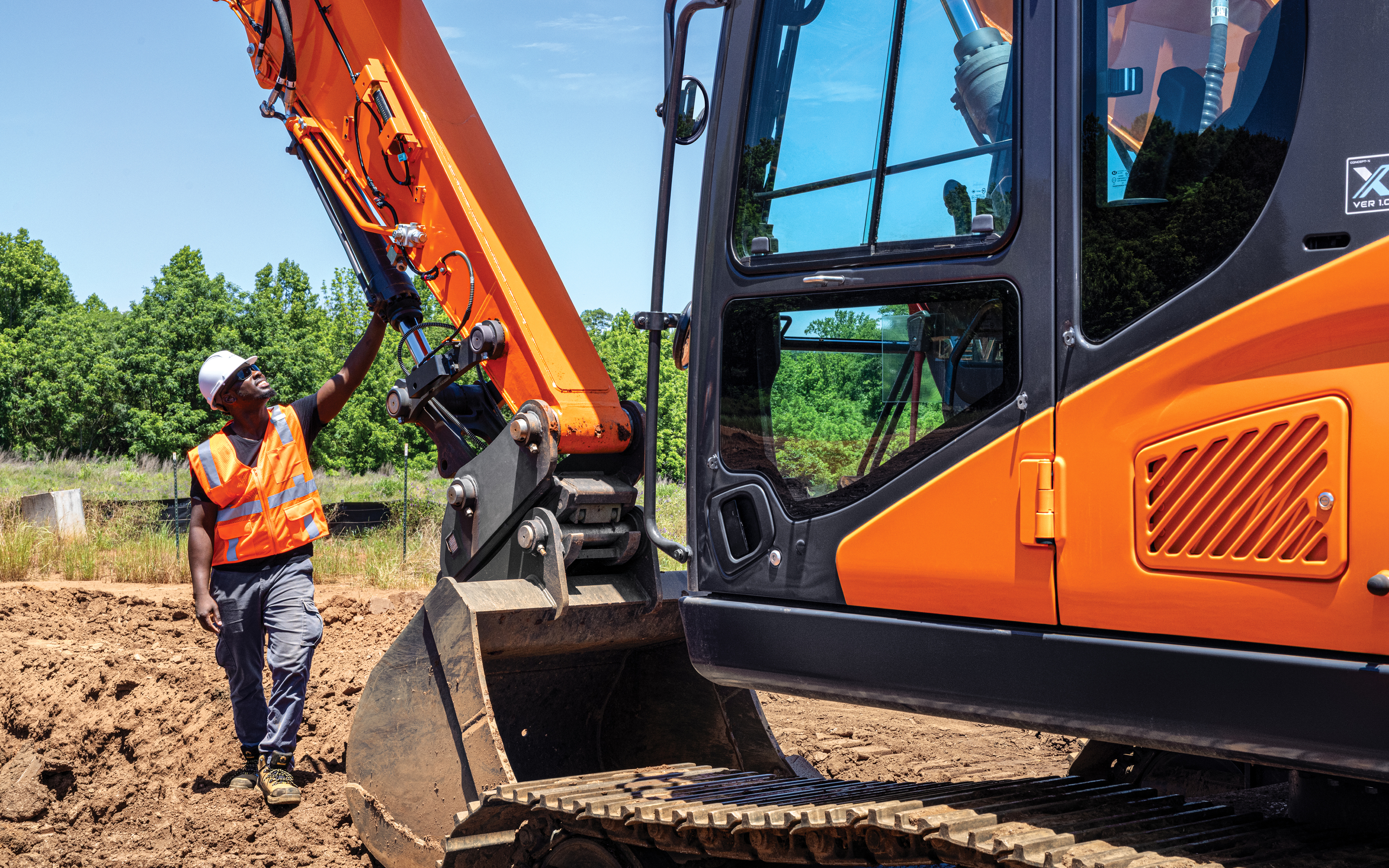Financing Mini Excavator Purchases vs. Paying Cash: Which Is Best?
As a construction business owner or operator, you strive to take your company to new heights. One way you can do that is by buying, leasing or financing construction equipment, like mini excavators. But, there are many questions to answer and considerations to understand before making this pivotal decision. Ultimately, the choice depends on your specific circumstances, including your financial position, long-term business goals and the availability of attractive financing terms. Let’s delve deeper into whether paying cash, leasing or financing mini excavators makes the most sense for you and your balance sheet.
Buying, Leasing and Financing: What’s the Difference?
Buying, leasing and financing are three different methods of purchasing equipment from a dealer, each with its own considerations. Here’s a quick overview:
Buying: When you buy a machine, you become the owner and have complete control over the equipment, including its use and potential resale. It involves making a one-time payment using cash.
Leasing: Leasing means you pay for the right to use the machine over a specified period. This typically involves making regular lease payments, monthly or quarterly, to a leasing company.
Financing: Financing is borrowing funds from a lender to eventually purchase the machine. You make regular loan payments, over a prearranged payment term, to repay the loan over time. Once the loan is repaid, you own the equipment outright.
What Are the Advantages of Cash vs. Leasing vs. Financing?
There are many advantages to paying cash, leasing and financing for mini excavators, as well as heavy construction equipment, such as crawler excavators and wheel loaders. Below are a few pros of each:
Paying Cash
- Immediate Ownership: Buying equipment outright gives you complete ownership. You can use it as you see fit and have the freedom to sell it whenever you choose.
- No Interest Costs: Purchasing equipment outright with cash means you avoid paying interest charges and financing fees, which can result in cost savings over time.
- Long-Term Investment: Owning construction equipment can be a mid-term (1-3 years) to long-term investment. Properly maintaining your machine will prolong its lifespan and assist with retaining value. As an example, many customers who operate DEVELON compact excavators utilize their equipment for 400–500 hours each year. The limited annual usage of these machines often result in long equipment lifespans, providing you with a valuable asset for many years.
- Simplified Budgeting: Cash purchases involve a one-time payment, which can help make budgeting and financial planning more straightforward. If you decide to pay in cash, you may be eligible for a rebate that is not available for leasing or financing equipment.
Leasing
- Newest Machines With the Latest Technology: Leasing allows you to access the latest equipment models and technology without the commitment of long-term ownership. At the end of the lease, you can choose to continue with month-to-month payments until you are done with the machine. Or you can buy out the machine with cash or financing or return the machine and lease a newer model with upgraded technologies.
- Conserved Cash Flow: Leasing typically involves lower upfront cost compared to buying, reducing monthly expenditures and positively impacting your cash flow position.
- Tax Deductibility: Lease payments are often considered operating expenses and can be tax-deductible, potentially reducing your overall tax liability You can write off the entire amount of machine lease payments as a business expense and deduct the monthly lease payments on your taxes. Visit with your accountant to make sure your lease meets the requirements.
- Maintenance May Be Included: Many lease agreements not only carry the full factory warranty but can be supplemented with longer-term coverage and service agreements. Contact your local DEVELON dealer for offers in your area.
Financing
- Equipment Ownership: Financing allows you to take immediate position of a machine. This enables you to operate the equipment and generate revenue all while you are making pre-arranged payments with your chosen lending institution. Once the loan has reached end-of-term, you own the machine.
- Spread Costs Over Time: Financing allows you to spread the equipment’s cost, easing the immediate cash flow burden. DEVELON makes it easy with interest rates as low as 0% for up to 60 months for compact excavators and 0% for 36 months for heavy equipment. Plus, a three-year, 5,000-hour extended warranty is offered on all our equipment. Check out our latest special offers.
- Tax Benefits:Similar to with leasing, you may be eligible for tax deductions on interest expenses and depreciation of the equipment.
Which Cash or Financing Option Is Best?
Choosing the best method for buying construction equipment depends on a variety of factors unique to your business. A few considerations include:
1. Financial Situation: Your current financial position is a critical factor when selecting a method of securing equipment. If your business has ample cash reserves and is financially stable, paying cash might be a viable option. On the other hand, if you are concerned about depleting your cash reserves or have limited working capital, financing could be a better option to maintain sufficient liquidity for operational needs and emergencies. Many lenders offer auto-pay options for lease or finance payments. The majority of our customers use one of these services to automatically deduct their monthly installment at a certain time.
2. Cash Flow: Paying cash upfront for equipment may strain your cash flow in the short term, potentially affecting your ability to cover other expenses or take advantage of growth opportunities. In contrast, leasing or financing allows you to spread the cost over time, reducing the immediate impact on your cash flow.
3. Cost of Capital: Compare the cost of financing with the opportunity cost of using your cash for other purposes. If your business has access to low-cost financing with favorable terms, it might be more beneficial to finance the equipment and retain your cash for higher-return investments or emergency reserves. Conversely, if the cost of financing is high, paying cash could be a more cost-effective option in the long run.
4. Equipment Lifespan and Resale Value: Consider the expected lifespan and potential resale value of the equipment. If you plan to use the machine for an extended period, paying cash might make sense. However, if the equipment is likely to become obsolete or depreciate quickly, financing could spread the cost over its useful life and align payments with its economic value.
5. Tax Implications: Explore the tax implications of all three options. Paying cash for equipment may have immediate tax benefits, such as the ability to deduct the entire purchase cost in the current year under certain tax laws. On the other hand, leasing or financing may allow you to take advantage of depreciation deductions over the equipment’s useful life, potentially reducing your taxable income.
6. Growth and Expansion Plans: Consider your business’s growth and expansion plans. If purchasing equipment is critical to achieving growth objectives, financing can provide the necessary funds while conserving cash for other strategic initiatives.
7. Flexibility and Ownership Control: Paying cash provides outright ownership and control of the equipment from day one. Financing, especially under specific lease agreements, may impose restrictions on equipment use or require permission from the lender for certain actions.
8. Risk Tolerance: Paying cash eliminates any financial risk associated with debt, but financing introduces a degree of leverage that could amplify returns in a growing market.
Carefully evaluate the financial implications, tax benefits, equipment usage and your growth plans before deciding on the best option for your construction equipment purchases. Consulting with financial advisors or industry specialists can help you make an informed decision tailored to your unique business circumstances.
If you’re in the market for new construction equipment, check out our latest special offers. Then contact your local dealer for a quote today.

By Nitesh Kalwar, Financing Strategy and Risk Manager
Nitesh Kalwar is the financing strategy and risk manager at DEVELON. He leads financing strategy and risk management for all commercial and consumer financing for DEVELON dealer networks and manages relationships with DEVELON-approved lenders.



